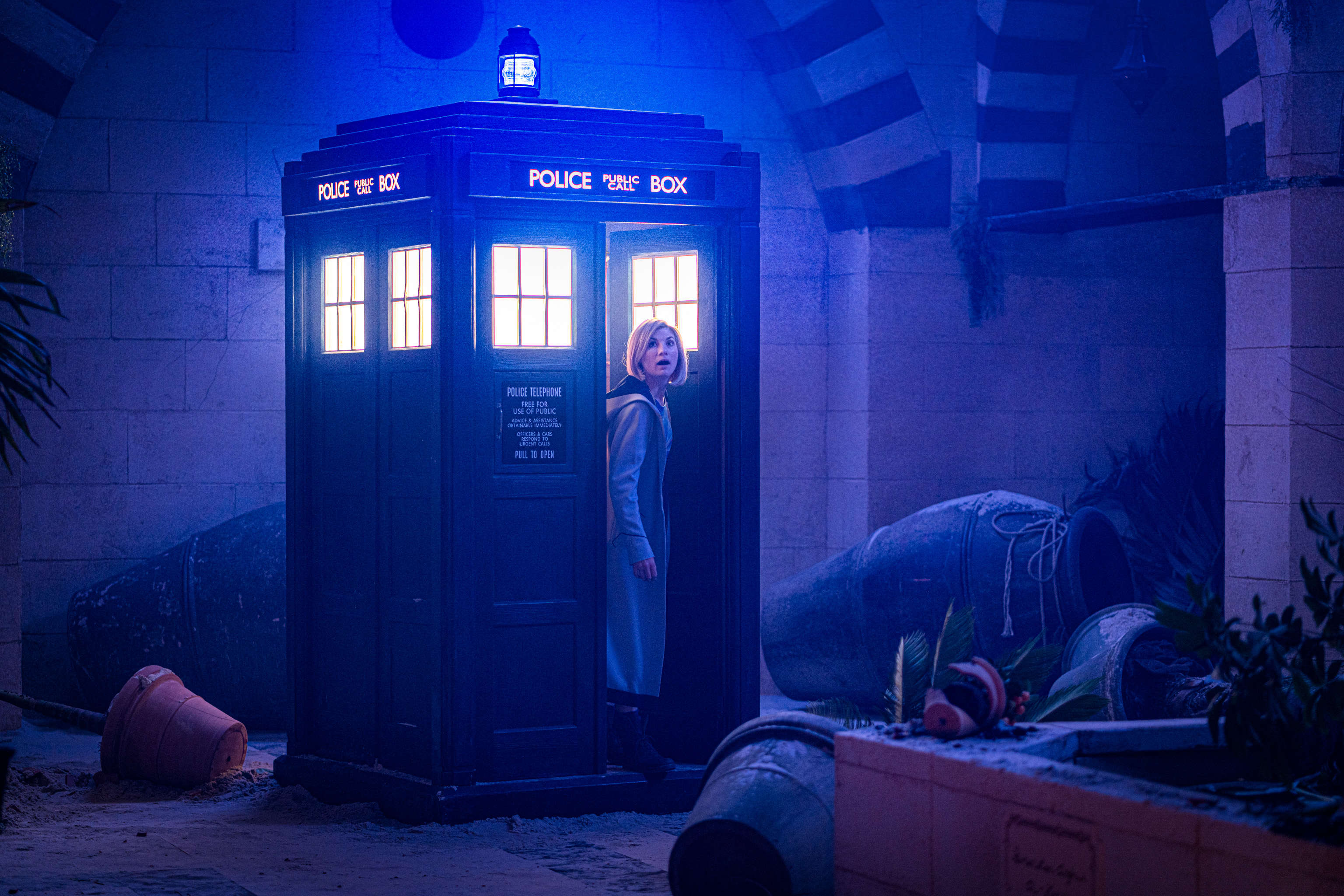Create a free profile to get unlimited access to exclusive videos, sweepstakes, and more!
Doctor Who legend Steven Moffat reveals the 3 key rules for TARDIS-worthy storytelling

Sure, it’s a show about a regenerating Time Lord with sci-fi powers who travels through vortices to fight malevolent mutants and shapeshifting cyborgs. But Doctor Who hasn’t taken root as a pop culture phenomenon on the strength of its sci-fi credentials alone. Beneath the Daleks’ cold skin and the TARDIS’ deceptive booth disguise, there’s a trove of high-stakes stories, real human drama, and plenty of good, old-fashioned, action-fueled tension.
Through more than half a century and 13 Doctors, the iconic BBC serial has put its characters through enough story stress to keep viewers on the edge of their seats — even if you could somehow strip away all the spacey trappings. And there’s probably no one alive more qualified to spill the secrets on telling a good story fit for the Who-verse than former showrunner and writer Steven Moffat.
Moffat, a Hugo and BAFTA winner who’s also ventured beyond sci-fi as a co-creator and writer for Sherlock, recently revealed in the "Writing Doctor Who" special edition of Doctor Who Magazine a trio of key things to keep in mind if you aspire to send Jodie Whittaker (or her eventual successor) spiraling through space and time. Moffat’s “rules” for writing an effective Doctor Who story focus on feeling free to let your mind wander beyond genre confines, being versatile, and knowing how to keep an audience hooked by toying with expectations.
Via Bleeding Cool, Moffat says it’s best to write what you know — whether it’s sci-fi or something else. “[I]f you wrote an episode of Black Mirror, I think you'd have to be very good at sci-fi,” he said, pointing to drama writers Rona Munro (“The Eaters of Light” with Peter Capaldi as the Twelfth Doctor) and Catherine Tregenna (Torchwood) as recent examples. “But if you can write action, adventure, humor, romance, and emotion, you will do fine on Doctor Who.”
Writing within your comfort zone means the sci-fi stuff can happen organically, Moffat added. “If you need some old hack like me to invent some sci-fi names for the monsters, that's fine. But even then, I don't think you need that. That's where 'timey-wimey' comes from. The Doctor doesn't speak in sci-fi jargon – he invents his own idiot-sounding jargon.”
Thinking outside the sci-fi box and drawing on all your tale-spinning talents helps, too: “I can't think of a writing skill that you don't use on Doctor Who,” Moffat explained, suggesting that a well-balanced story is one that requires a versatile writer’s toolkit. There’s no writing “resource you will not call on,” he said. “You need to be good at plotting, character, action, humor… and good at stage directions!”
Most important, perhaps, is knowing when to bend your own rules — all so viewers can stay hooked. “There's stuff like 'Get them out of the TARDIS as fast as you can!,’” he explained, hinting that a show’s internal logic is “a rule… until it isn’t.” If there’s an especially tense action scene, for example, where the TARDIS can’t take much more and the suspense is putting the audience on the edge of its seat, “stay there for a while!” Moffat joked.
Current head writer and EP Chris Chibnall already has plenty of momentum heading into the show’s Series 13, with Whittaker set to reprise her role as the Thirteenth Doctor, as Doctor Who gets set to debut a new eight-episode batch later this year. We’ll take Moffat’s writing rules to heart and spin some Who-verse tales in our own heads as we catch up with past seasons at HBO Max…while we wait for word from BBC for a firm Series 13 premiere date.



























